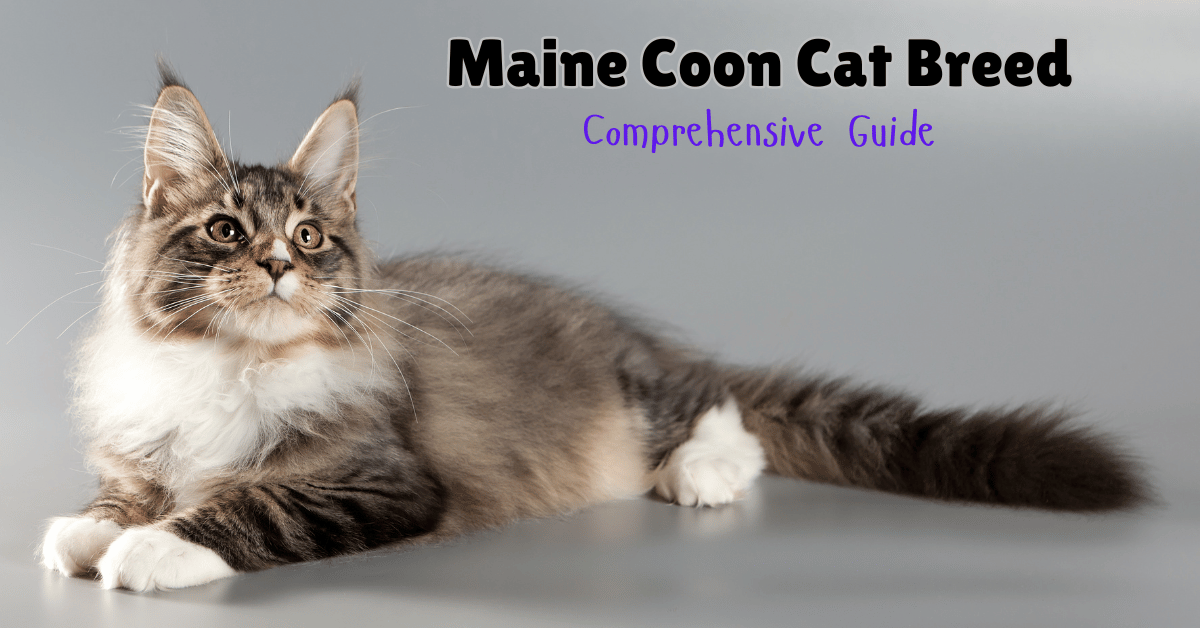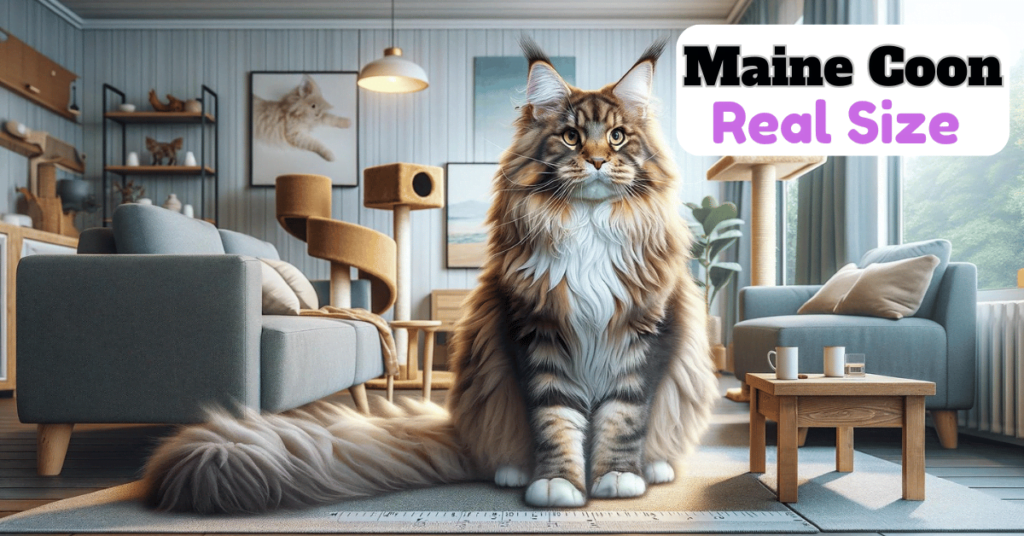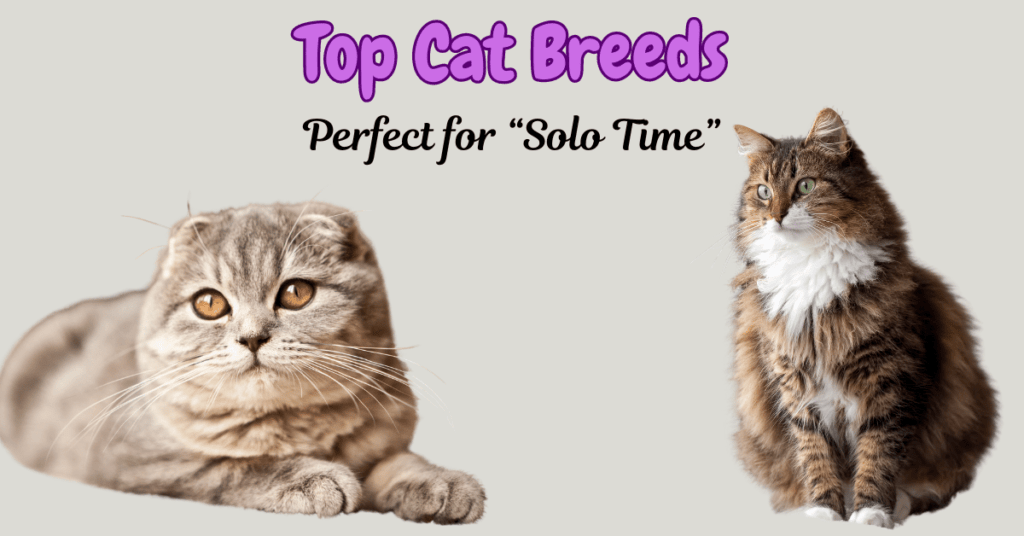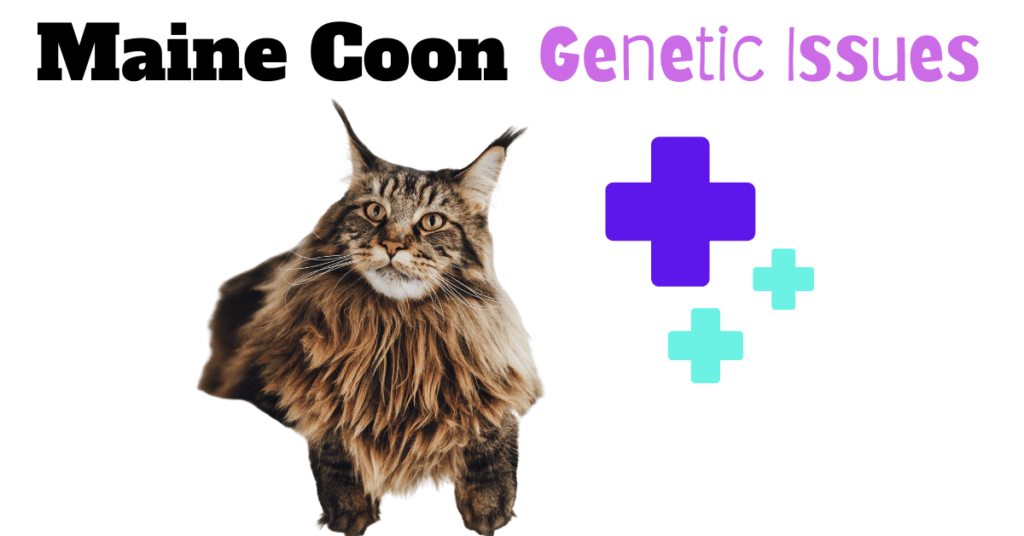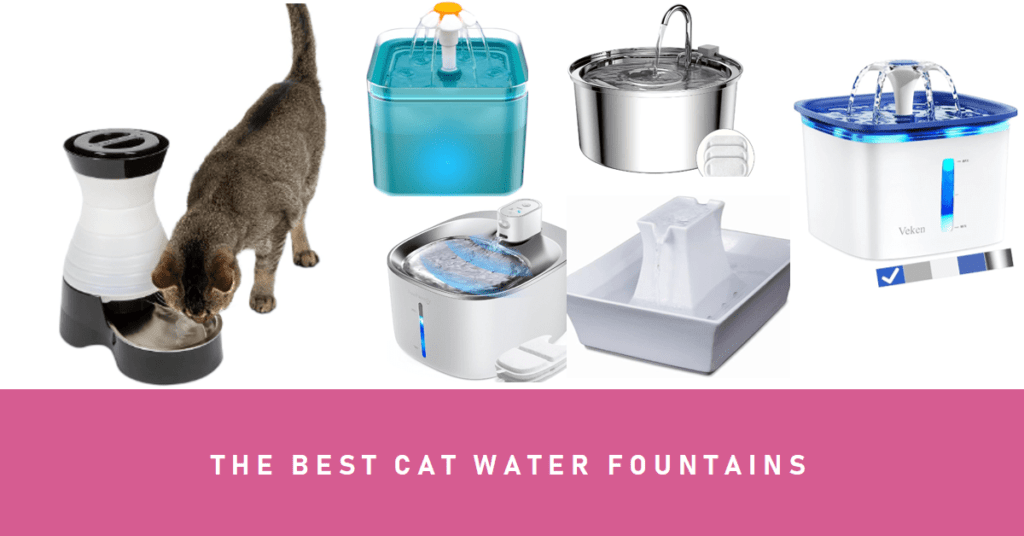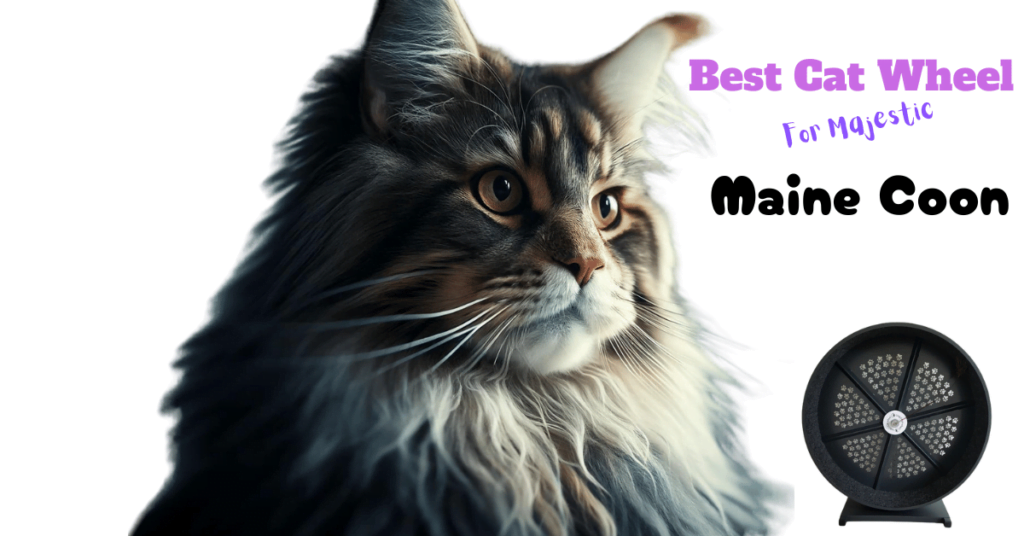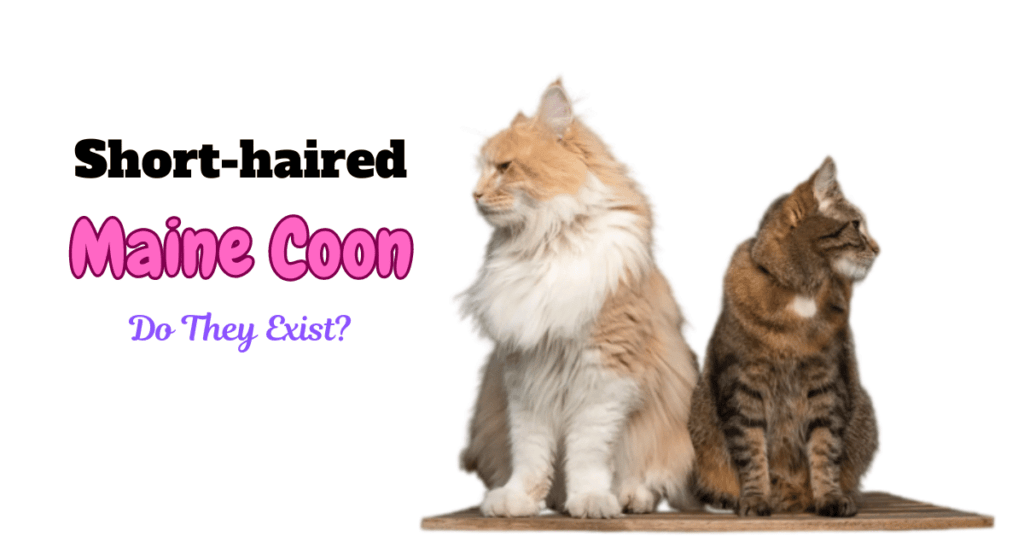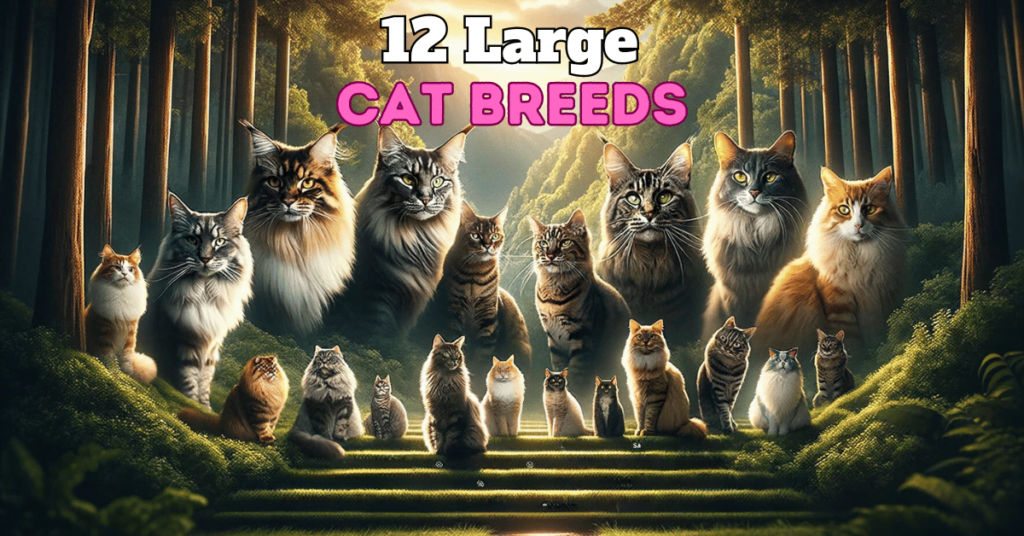This post contains affiliate links and I will be compensated if you make a purchase after clicking on my links.
Discover the Maine Coon Cat Breed: A Gentle Giant Among Felines
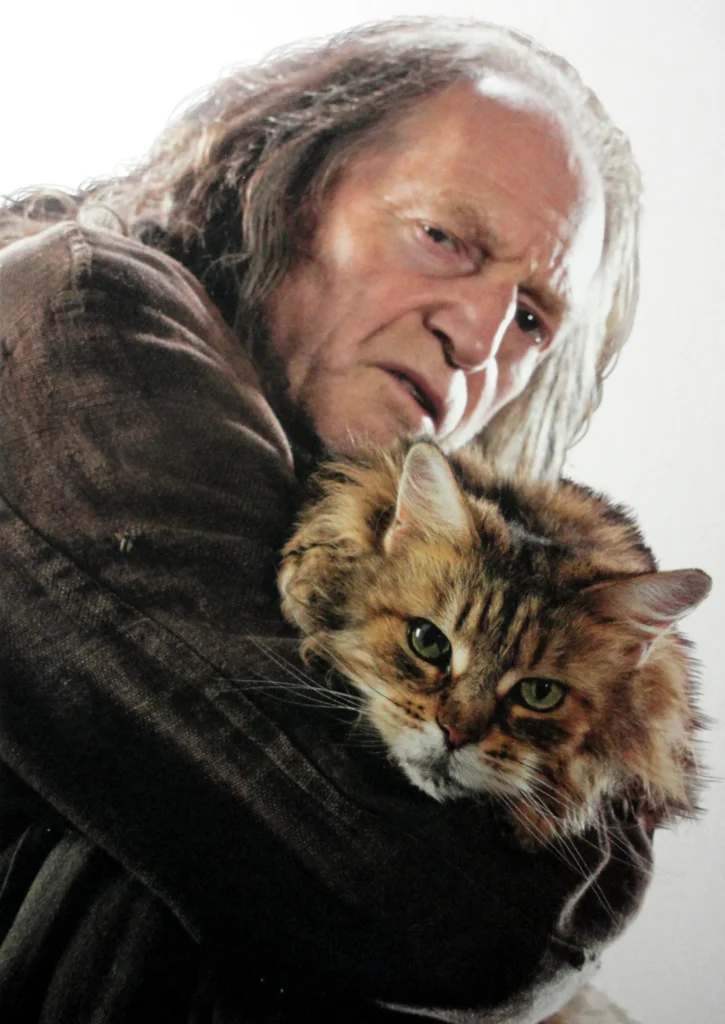
Did you know that a Maine Coon cat starred as Mrs. Norris in the Harry Potter film series? Known for their considerable size and sociable nature, Maine Coon cats are not just the largest domesticated cat breed, but also movie stars!
Originating from the chilly state of Maine in the United States, these feline giants are as mysterious as they are majestic.
With their rich history, robust physical characteristics, and unique genetic makeup, Maine Coons are truly enchanting creatures. Dive into the myths, the facts, and the essential care tips that make the Maine Coon a spellbinding companion.
The Origins of Maine Coon Cats
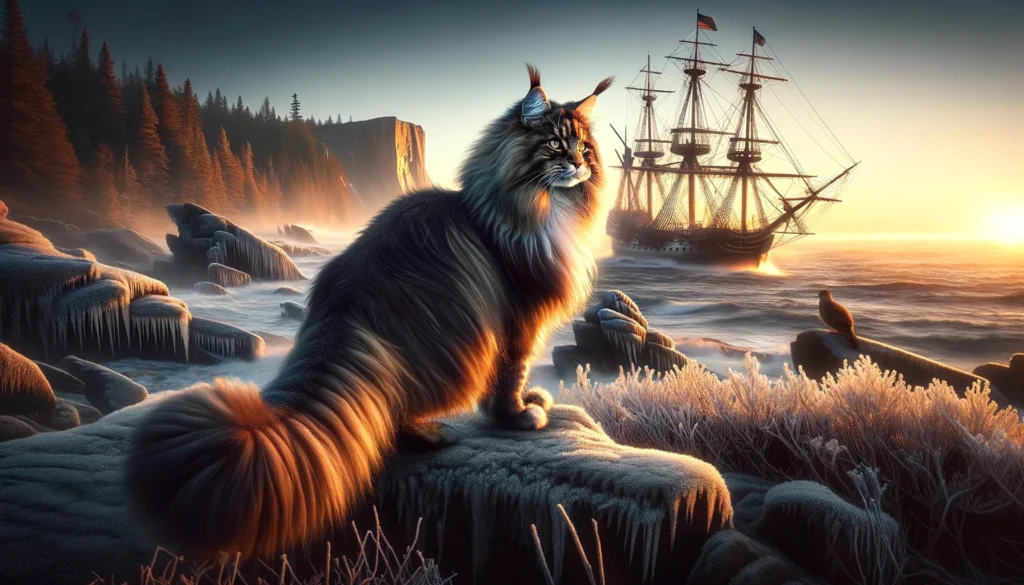
Did you know the Maine Coon might have strutted onto American shores with early explorers? This breed, often considered America’s first show cat, has a backstory as plush and vibrant as its fur. Originating in the frosty climes of Maine—hence the name—these cats likely evolved from a mix of foreign long-haired cats and local short-haired breeds, proudly standing as the U.S.’s original long-haired feline.
The tales surrounding their name are just as colorful. One yarn spins around a sailor named Charles Coon, whose own cats might have fathered the first of this breed. Another theory suggests the name reflects their bushy, raccoon-like tails.
At the first North American cat show in 1895 at Madison Square Garden, a Maine Coon named Cosey took home the top prize, and her legacy continues to charm cat lovers today. Her winning silver collar, a relic of feline aristocracy, is displayed at the Cat Fanciers’ Association (CFA) Foundation, celebrating the Maine Coon’s enduring allure and historical significance.
In the early 20th century, the popularity of the Maine Coon began to wane with the introduction of other long-haired breeds like the Persian. However, it wasn’t until the 1950s that the Maine Coon regained prominence, thanks to a renewed interest sparked by the formation of the Central Maine Cat Club by Ethylin Whittemore.
Physical Characteristics
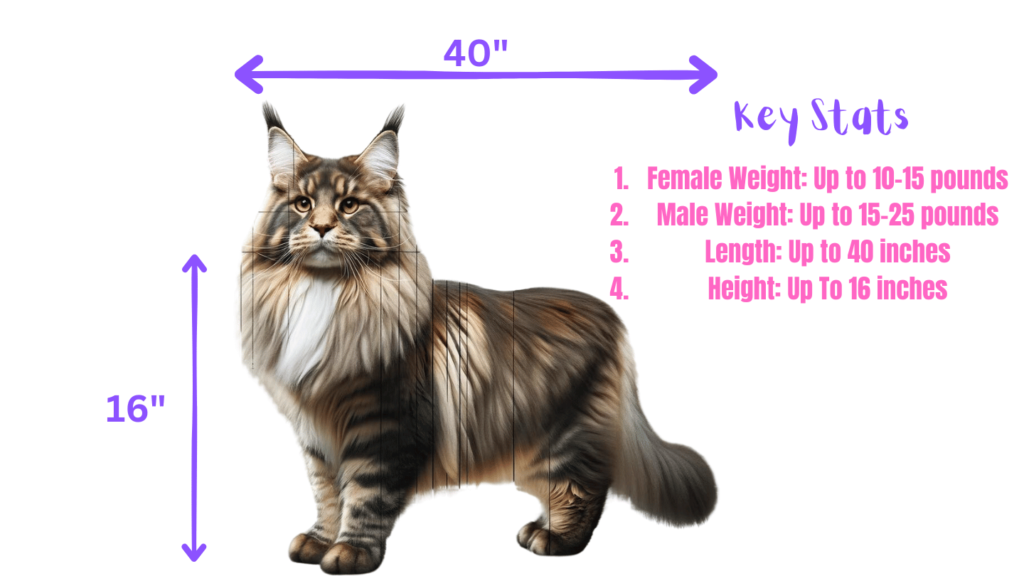
Maine Coon cats are known as the largest domestic cat breed, males typically tip the scales between 15 to 25 pounds, with females slightly lighter at 10 to 15 pounds. Standing 10 to 16 inches at the shoulder and stretching up to 40 inches in length, their sturdily built bodies are supported by muscular legs and wide chests, showcasing their impressive physical stature.
These cats mature slowly, reaching their full size only by three to four years old, which is one reason why they are so big. But it’s not just their size that’s impressive—their physical traits are finely tuned for resilience and agility. Large, expressive oval-shaped eyes and pointed ears topped with tufts enhance their sensory perception, making them exceptional hunters.
The Maine Coon’s fur is another of its superpowers. Long, silky, and water-resistant, it varies in length but is shorter near the shoulders to provide mobility without sacrificing warmth.
This luxurious coat displays a kaleidoscope of colors and patterns, ranging from solid shades to intricate tabbies and calicos, with a stunning 75 different color combinations available, including popular colors like blue, red, black, white, silver, and brown. Their eyes may sparkle in green, gold, or copper, while those with white coats might dazzle with blue or odd-colored eyes.
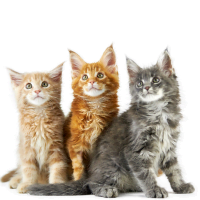
The Personality and Temperament of Maine Coon Cats
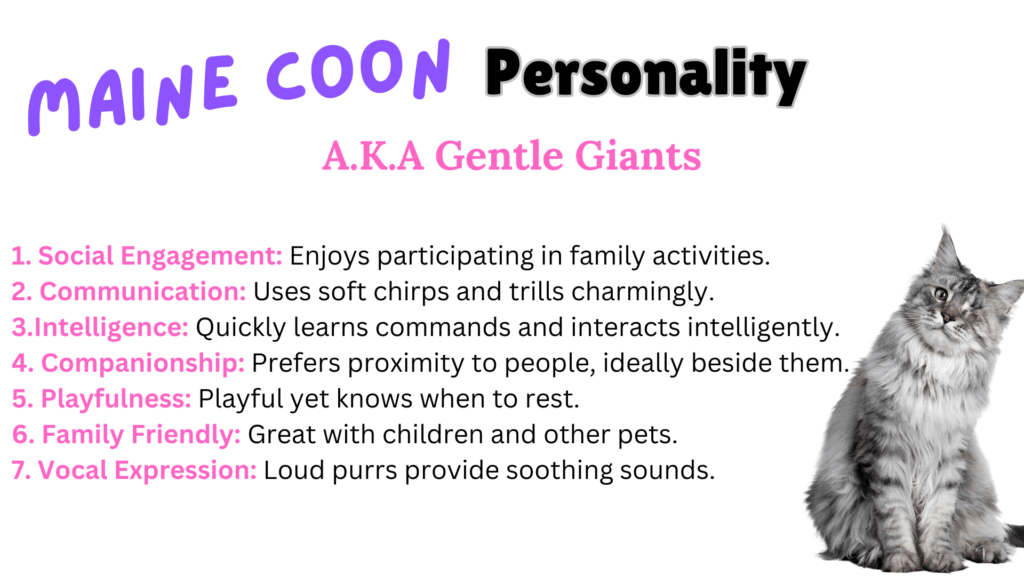
Maine Coon cats, affectionately known as the “gentle giants” of the cat world, blend the independence of cats with the affectionate nature of dogs. Known for their sociable and relaxed demeanor, they actively participate in household activities, from shadowing their humans to “helping” in the kitchen. Despite their size, they communicate with soft chirps and trills, enhancing their endearing character.
These cats are not only large in stature but also in heart. They are incredibly intelligent and communicative, often using their extensive vocabulary to engage in conversations with their owners, responding to and sensing human emotions. This high intelligence also makes them remarkably easy to train, readily picking up tricks and commands. While they love being close to their favorite people, especially during chilly evenings, Maine Coons typically prefer to sit beside you rather than on your lap, which is fitting given their size.
Maine Coons also have a playful side, enjoying games that delight both children and adults, but they know when it’s time to wind down for a cozy nap. Their purrs, surprisingly loud for such gentle cats, can fill a room with comforting vibrations.
Health and Lifespan of Maine Coon Cat
Maine Coon cats are generally robust, typically living between 12–15 years. However with proper care, nutrition, and exercise, some Maine Coons have been known to live beyond 20 years.
While Maine Coon cats are known for their robustness, they are susceptible to a range of health issues, including both genetic conditions and lifestyle-related concerns. Some of the health issues they may face include:
- Hypertrophic Cardiomyopathy (HCM): This heart condition affects around 30% of the population, causing the heart muscle to thicken.
- Hip Dysplasia: A malformation of the hip joint that can lead to pain and mobility issues.
- Joint Diseases: Including arthritis, which can cause discomfort and reduce activity levels.
Diet Requirements for the Maine Coon Cat Breed
To support their long-term health and vitality, a balanced, high-protein diet low in carbohydrates is crucial. Including 20-30% of good fats, such as omega-3 and omega-6 fatty acids, in their diet is beneficial for maintaining their lush coat and overall health.
Additionally, Maine Coons have a notable preference for water, so it’s important to always have fresh, clean water available, ideally placed away from their food bowl to encourage drinking.
Pro Tip: The amount of food your Maine Coon needs depends on their activity level and weight. An adult Maine Coon needs between 24 and 35 calories per 500 g of body weight
Exercise Requirements for the Maine Coon Cat Breed
Regular exercise is vital for Maine Coon cats to maintain their physical fitness and mental well-being. Given their large size, they require plenty of space to roam and play, which helps prevent obesity and keeps them agile. Optimal exercise for Maine Coons is 20-60 minutes a day, ideally split into 10-minute segments.
It’s important to regularly check their weight and compare it to ideal weight estimates to ensure they are within a healthy weight range.
Engage them with interactive toys like feather wands, fishing pole toys, tossed balls, and fuzzy mice to stimulate their hunting instincts and provide mental stimulation. Use laser pointers with caution—never shine the light directly into their eyes, and always conclude play with a tangible toy to prevent frustration.
Pro Tip: In addition to regular play, Maine Coons can be trained to walk on a leash, offering further opportunities for exercise and mental engagement.
Grooming Needs of Maine Coon Cats
Maine Coons boast a magnificent coat that demands regular grooming to stay pristine and healthy. Here’s a breakdown of their grooming essentials:
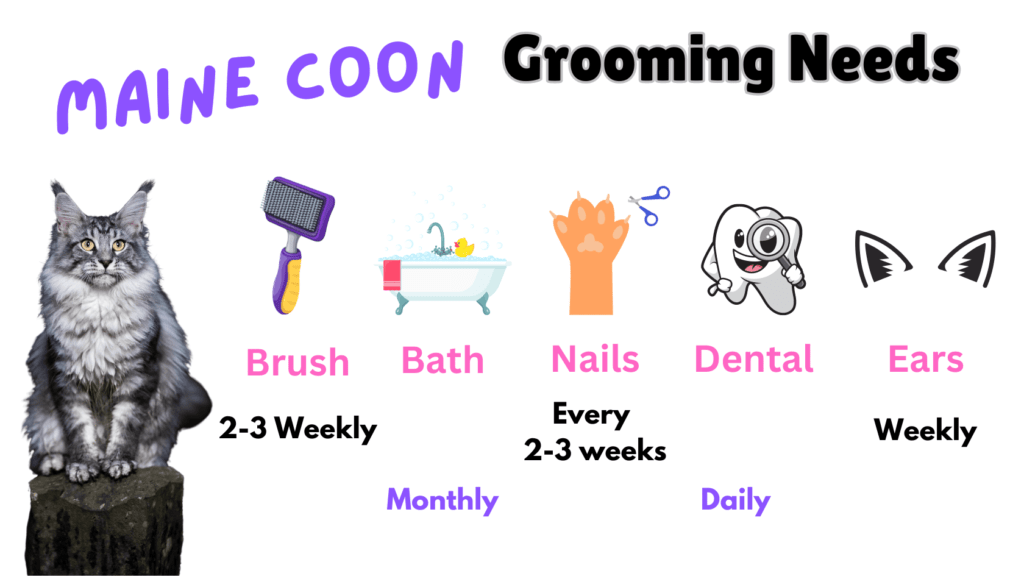
- Coat Care: Invest in a quality brush and groom your Maine Coon’s thick, dense double coat with its silky soft undercoat two to three times a week to prevent matting. Depending on the condition of their fur, some Maine Coons may require daily brushing.
- Bathing: Despite their love for water, Maine Coons don’t need frequent baths. Aim for monthly baths or whenever their coat begins to look greasy or stringy.
- Nail Trimming: Aim to trim their nails at least every 2-3 weeks to prevent them from becoming overly long, which helps protect your furniture, clothing, and skin from accidental scratches.
- Dental Care: Daily teeth brushing is ideal to maintain oral health and can reduce the frequency of professional dental cleanings.
- Ear Care: Inspect your Maine Coon’s ears weekly for any signs of dirt, wax buildup, redness, or odor. The presence of tufted hair in their large ears can trap debris and hinder self-cleaning.
Being aware of and knowledgeable about all the grooming requirements is crucial, as these sessions provide an opportunity to strengthen your bond with your Maine Coon. These interactions are not only beneficial for their physical health but also for their emotional well-being.
Fun Fact: Maine Coons, much like Bengals, have a love for water. This affinity may stem from their ancestors’ days on Viking ships, navigating the high seas. This fondness for water often makes Maine Coons more receptive to baths than many other cat breeds.
Celebrating the Maine Coon Cat Breed
Maine Coons are beloved for their striking appearance, gentle temperament, and playful nature. They are not only majestic in stature but also endearing in personality, making them a favorite among cat enthusiasts worldwide.
Their ability to bond with families, coupled with their adaptability to training and care routines, makes them standout companions in the feline world. Whether it’s their historical charm or modern-day charisma, Maine Coons continue to capture hearts and homes with their unique blend of beauty and affection.
Meet Sean, a fintech whiz with a penchant for pet purrs and blockchain buzz. After a decade of fintech feats, Sean's tech talents leaped from ledger lines to litter lines, driven by a passion for pets and a vision for a more connected pet care community. With three critter companions as co-pilots, Sean launched this blog to share a treasury of pet-friendly tech tips and tales.

